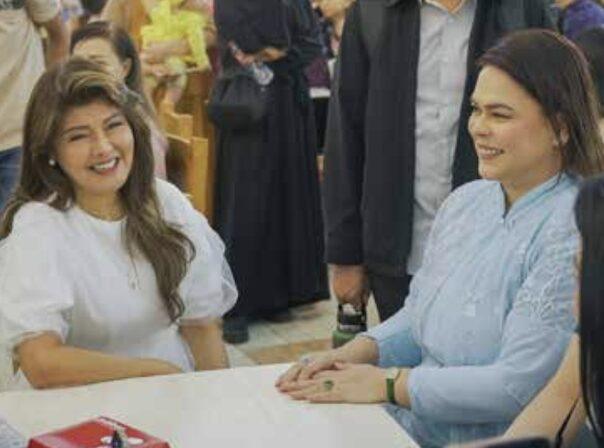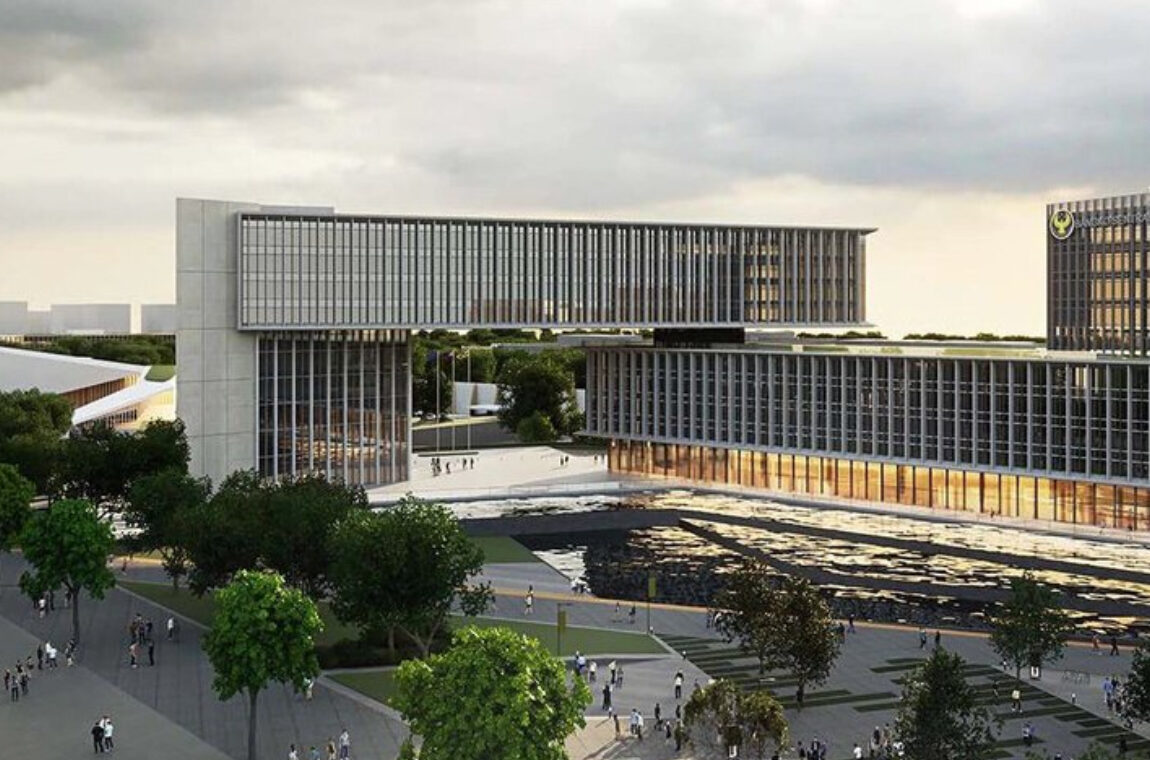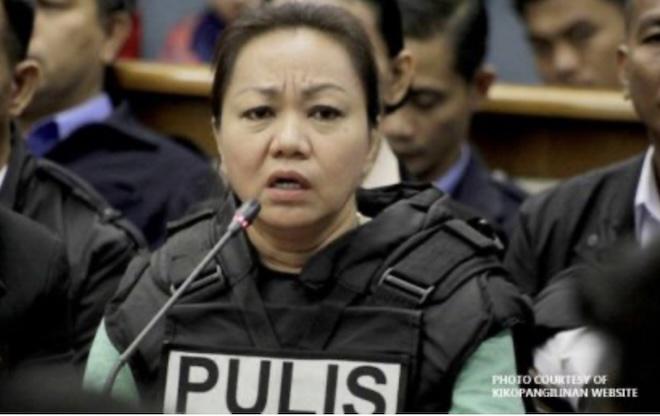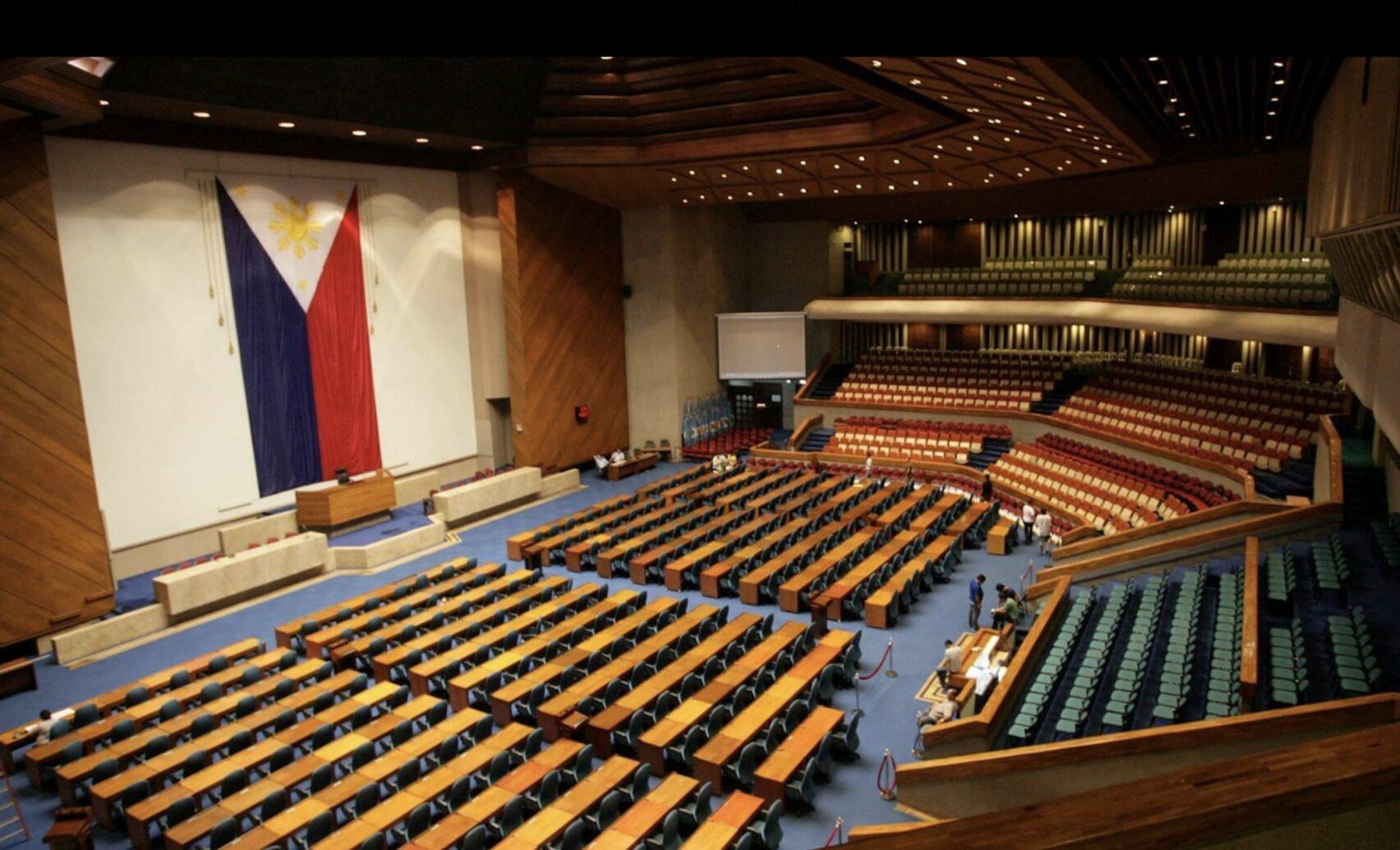Senator Imee Marcos and Vice President Sara Duterte
Photo from Facebook/@Imee Marcos
While many political alliances in the Philippines have shifted with the winds of power, one pairing has endured with surprising consistency: Imee Marcos and the Dutertes. Their relationship—defined by mutual support, shared political interests, and public displays of solidarity—has placed the senator in the role of one of Duterte’s most visible and vocal defenders, even on the international stage.
That loyalty was on full display in May, when Marcos traveled to The Hague, where former President Rodrigo Duterte is being held by the International Criminal Court (ICC). There, she met with Duterte’s lead defense counsel, international lawyer Nicholas Kaufman, who has represented other high-profile defendants in war crimes and crimes against humanity cases.
“Together, we will bring PRRD home,” she said after the meeting, referring to Duterte by his initials. She described the visit not as symbolic, but as a direct expression of her support—and an effort to explore ways to secure the former president’s return to the Philippines.
The trip coincided with Vice President Sara Duterte’s birthday and included her mother, Elizabeth Zimmerman. Marcos joined the Duterte family in what appeared to be a quiet show of political unity. “More than anyone, I know the feeling of being separated from one’s homeland,” she wrote on social media after the visit—a reference to her own family’s years in exile following the 1986 ouster of her father, Ferdinand Marcos Sr.
Her support for Duterte dates back nearly a decade, rooted in a personal promise. During the 2016 presidential campaign, Duterte assured Imee Marcos that if he became president, he would allow the burial of her father, former President Ferdinand Marcos Sr., at the Libingan ng mga Bayani—a request the Marcos family had long sought. After his election, he kept that promise.
“I promised during the campaign,” Duterte later said, “that if I became president, I would allow the burial of Marcos in the Libingan ng mga Bayani. One of those who asked was Imee.”
That decision—carried out in November 2016—sparked protests and multiple legal challenges, but Duterte defended it as a matter of national healing, citing Marcos Sr.’s status as a former president and soldier. For Imee Marcos, it wasn’t about legacy-building. “We just wanted a soldier’s burial,” she explained. “Not a hero’s welcome. And President Duterte gave that to us.”
The Supreme Court upheld Duterte’s decision in a 9–5 vote, clearing the way for what became one of the most symbolic and polarizing acts of his administration. For Imee, it marked not only a moment of personal closure, but the beginning of a political alliance that would grow in both visibility and intensity.
In 2025, after being excluded from the Senate slate endorsed by her brother, President Ferdinand “Bongbong” Marcos Jr., Imee joined the Duterte-backed “DuterTen” coalition. She won a narrow but high-profile re-election and, in her victory speech, pointedly thanked the Dutertes while omitting mention of her brother or his party. “My loyalty is to the Filipino people, not to my relatives,” she later said.
She has also taken a strong stance against the ICC proceedings. Duterte faces charges of crimes against humanity for thousands of killings tied to his administration’s anti-drug campaign. His legal team argues that the ICC lacks jurisdiction, citing the Philippines’ formal withdrawal from the Rome Statute in March 2019. The Court, however, maintains it retains jurisdiction over alleged crimes committed while the country was still a member—an interpretation upheld by the ICC’s Pre-Trial Chamber and consistent with Article 127 of the Rome Statute.
Marcos has echoed those arguments. “We have a functioning judiciary,” she told reporters. “We are not a colony.” In a Facebook post after her visit to The Hague, she added: “This isn’t just about legal defense. It’s about sovereignty.”
Even moments of personal tension haven’t broken the alliance. Sara Duterte previously revealed that during a political falling-out, she warned Imee: “If your camp keeps attacking me, I’ll dig up your father’s body and throw it into the West Philippine Sea.” Marcos, for her part, downplayed the incident. “Politics isn’t always polite,” she said. “But I trust Sara.”
Critics argue that the alliance is ultimately transactional. Duterte’s enduring popularity—particularly in Mindanao and among the working-class electorate—remains politically valuable. His support gave Imee Marcos a platform after a period of cooling relations within the Marcos administration. But the senator maintains that her allegiance is rooted in principle.
“We believe in an independent Philippines—strong, sovereign, and guided by discipline and national pride,” she said. “That’s not strategy. That’s conviction.”
Few lawmakers have taken their defense of Duterte as far as The Hague. Imee Marcos, along with Senator Robin Padilla—who made a similar visit in March—has emerged as a prominent voice challenging the ICC’s authority while reinforcing nationalist opposition to its probe.
In a political landscape still adjusting after the midterm elections—where dynasties continue to dominate and divisions within them have grown more visible—Imee Marcos’s allegiance to the Dutertes offers something rare in Philippine politics: consistency. Whether it endures or evolves will depend on what unfolds in both courtrooms and future campaign trails.
But for now, her message remains the same.
“He kept his word,” she said of Rodrigo Duterte. “And I won’t forget that.”







